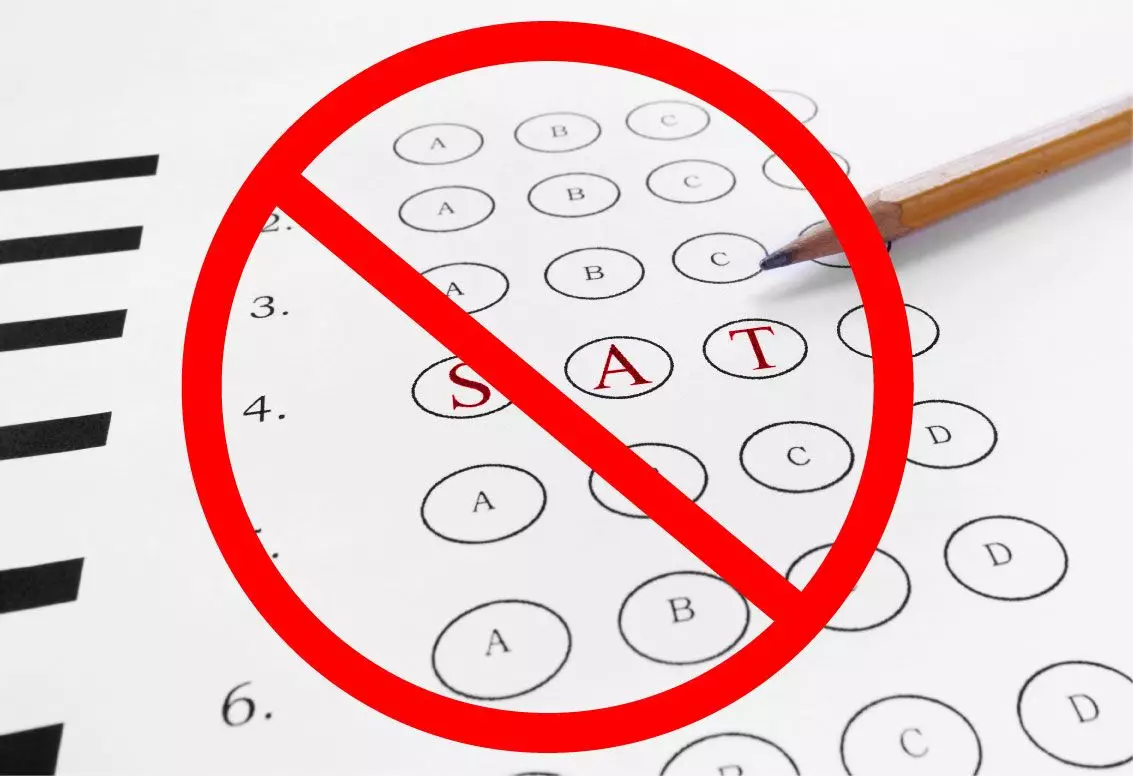It’s no secret that the COVID-19 pandemic has turned nearly every aspect of our lives upside down, on top of truly (and literally) giving us a run for our money. One specific area which has been particularly impacted by the pandemic is the world of higher education, and even more specifically, the college admissions process.
As any students (and parents) reading this will know, the college admissions process is made up of several key components: GPA, personal statements and supplemental essays, teacher recommendations, and extracurricular involvement, with perhaps the most hotly debated component over recent years, but especially recent months, being standardized test scores.
For the past few decades, students have been told and often reminded of the importance of preparing, sitting for, and succeeding on their standardized tests.
Standardized test scores have proven to be of the utmost importance at the most rigorous and competitive institutions, where test-scores were almost forced to become the primary differentiator between students who proved to be equally high-achieving and promising in the other categories of admission.
Despite this fact, it has become a popular belief (and students have not been wrong to believe it), that test scores are a key factor in the college admissions process.

The raging and flaring pandemic that has been on our hands over the past year has notably wreaked havoc on students’ abilities to successfully register and sit for SAT and ACT exams. In December 2020 alone, nearly 124,000 students were unable to take the SAT due to test center closures, and this number has been steadily ebbing and flowing throughout the entirety of the pandemic.
The fact that many testing appointments have been interrupted, and locations have been essentially shut down due to COVID, has certainly impacted high school seniors who are currently applying for college. In addition to this, it has also had a significant impact on younger high school students who are trying to figure out their admissions strategies and if they should even be preparing to sit for the exams at all.
So, with hundreds of thousands of students nationwide being shut out from taking these exams that, for so long, have been considered a vital component of the college admissions process, what is the proposed solution?
In order to combat the complications that the pandemic has brought upon students and their families as it relates to standardized tests, 1,685 accredited four-year colleges and universities to date have implemented some form of test-optional policy for incoming students.

The term “test-optional” refers to colleges and universities across the U.S. allowing students in upcoming admissions cycles to forgo submitting standardized test scores as a part of their college applications.
The majority of schools have gone test-optional, meaning that students fully have the option to decide whether or not they want to submit standardized test scores. This is the solution that many schools have settled on to tackle the issue of students not being able to successfully sit for the exams when they intended to.
Other variations of the test-optional policy structure include “test-blind” and “test-flexible”.
The test-blind policy, which is currently only being implemented by approximately 65 schools, does not allow any students to submit standardized test scores (and they will not be considered if submitted), regardless of whether or not students were actually able to sit for the exams.
The test-flexible policy allows students to submit alternative standardized test scores (such as AP or IP exam scores, and, up until recently, SAT Subject Tests), in lieu of SAT or ACT scores.
At the end of the day, the majority of schools are and have been adopting the traditional test-optional policies, in which students who are unable or choose not to sit for SAT or ACT exams will not have their applications penalized by admissions committees when it comes to making acceptance decisions.
Currently, the majority of those 1,685 schools are undergoing trials for test-optional admissions. Some institutions are indicating that it is only for the year, while others are using this time as an opportunity to launch several years-long trials of test-optional admissions. It is certainly wise to be following in the footsteps of the institutions that have committed to undergoing several years-long trials of the process.
This has been deemed the best way to perform research and collect data to analyze whether or not test-optional admissions is the way of the future, a turn that many people in the higher education space, myself included, see as a viable and more equitable possibility in comparison to the current policies that are in place.

Rob Springall, assistant vice president for Undergraduate Education and executive director of Undergraduate Admissions, says that “Penn State looks at the student’s academic record in high school, with special focus on the academic areas that relate to their intended major. For students who have not declared a major, the admissions team looks at the student’s overall academic performance in high school”.
Springall explained that Penn State has always put less weight on test scores than on other components of the admissions process, such as high school performance.
He is certainly not alone in making this type of claim; dozens of other colleges and universities have been reverting back to a similar statement in an effort to comfort students that applying to college without a test score is okay.
In the (now, likely) event that students do not submit test scores, institutions have been placing emphasis on a holistic admissions process, meaning everything that you do and can submit, such as your school grades/GPA, the rigor of your courses, teacher recommendations, extracurricular involvement, and personal statements will be weighed more heavily.

Despite the fact that the vast majority of colleges and universities have gone test-optional, students and their families across the US have responded with a certain sense of ambivalence in regards to whether or not they can actually believe the claims that students who don’t submit test scores will still be equally considered alongside their peers that are able to.
Multiple headlines and recent news articles have documented this belief among families, noting that many students are still pushing to get one of those coveted seats at an ACT or SAT test center, even as the global pandemic rages on.
Janet Godwin, the CEO of the ACT, has stated that many students are still choosing to go through with trying (or planning) to push through wherever possible because they want to “demonstrate what they can do”.
But the question is, why are students and their families so skeptical of the claims being made by higher education admissions officials in regards to test scores?
The simple answer is that ACT and SAT test scores are currently one of the primary concrete determinants that can be used to assess a student’s ability and likelihood for success at any given institution.
Standardized test scores have been ingrained as being crucial into the minds of students and their families alike for decades, especially for those students who are competing for spots at institutions with single-digit acceptance rates, making it difficult to simply accept that scores are no longer important or necessary.
At the end of the day, admissions officers and teams are trying to push students and families to not just hear, but to truly believe the statement that “optional does, in fact, mean optional”.
NACAC, the National Association for College Admissions Counseling, put out a statement in an attempt to appease students and families alike, saying “The colleges with test-optional policies in place affirm that they will not penalize students for the absence of a standardized test score. Together, we strongly endorse a student-centered, holistic approach to admission that will not disadvantage any student without a test score.”

Penn State University is one of the many accredited schools, and one of the approximately 900 top-ranked universities, that has made the decision to extend test optional policies for the next two years, in order to “alleviate some anxiety” that many students are facing now due to the pandemic.
Under these test optional policies, students applying to PSU through the Fall of 2023 will have the option to choose whether or not they want to submit standardized test scores (SAT or ACT). Since Penn State implemented these test optional policies, they have proven to be fairly popular among incoming freshmen.
Mark Hatch, VP for enrollment at Colorado College, a private and selective liberal arts college located in Colorado Springs, has stated that his team made the decision to go test-optional pre-pandemic in August 2019.
However, this was only after years of conducting research and analyzing the true impact of test scores on the admissions process. Ultimately, they found that test scores had “a marginal benefit in predictability”, and that other factors such as GPA and class rank were sufficient on their own.
In addition to these findings, another primary reason many schools and higher-ed institutions are now (or have been) in favor of eliminating standardized tests is due to factors surrounding equality.
Take Penn State’s statistics for example. As of December 1st, nearly 58% of all PSU applicants for the Summer/Fall 2021 class chose to not submit test scores as a part of their application.
Among that 58%, Penn State has taken careful notice that a solid percentage of those students are either first-generation or coming from underrepresented racial and ethnic groups. This speaks waves about what so many institutions have been getting at for years: the fact that standardized tests favor wealthy students who have the financial resources to prepare and succeed more so than their less well-off peers.

It seems like the COVID-19 pandemic has been an opportunity, and perhaps exactly what higher education institutions needed, in order to start to push away from putting a stressful emphasis on standardized test scores.
Longtime critics of the SAT and ACT have rightfully stated that these exams are a prime example of how the higher education system favors wealthy students who have the resources (think: private tutors, access to books) to adequately prepare for and succeed in the exams.
Steve Syverson, a retired senior admissions official at the University of Washington at Bothell and Lawrence University, believes that "Lots of colleges didn't really even need to require the SAT, as they were already admitting everyone who was admissible, but they didn't want to eliminate it as a requirement because they felt it would devalue them. In a sense, the pandemic -- and the pervasive adoption of temporary test-optional or test-blind policies -- gave them permission to eliminate the requirement. And I believe a large number of institutions will not return to requiring it. So I think there's no going back."

Merit scholarships, also called academic scholarships, are simply scholarships that students are eligible for based on their grades, test scores, class rank, and other components of their application. According to a study by NACAC, approximately 80% of colleges and universities use standardized test scores to determine and distribute national merit scholarships.
Merit scholarships have notably always been determined partially by the standardized test scores that students submit, with school grades being another primary determinant. Once applicants are admitted to a given school, the school is then comparing qualified student A with qualified student B. Without a standardized test score as an objective numerical differentiator, this makes the process of awarding merit scholarships difficult.
Jeff Schiffman, director of admissions at Tulane University, says that in this process of determining merit scholarships, the admissions committee looks for other “tiebreakers” in addition to (or in place of) test scores, such as an outstanding letter of recommendation or extracurricular activity.
For now, it also seems like the safe option to submit test scores if you have had the opportunity to take either exam if you were satisfied with the outcome, especially if you are hoping to earn some sort of merit scholarship from the schools you are applying to.
I believe that the pandemic has brought a unique silver lining to our attention in relation to the role of standardized tests in the college admissions process of the future.
While schools going test-optional is certainly an opportunity to rebalance these wealth inequities that are often (and rightfully, in my opinion) associated with standardized tests, adopting these policies does mean that the topic of how merit aid and scholarships play into testing will have to be reconsidered.
So, where does this leave us? I guess we'll just have to wait and see ¯\_(ツ)_/¯.